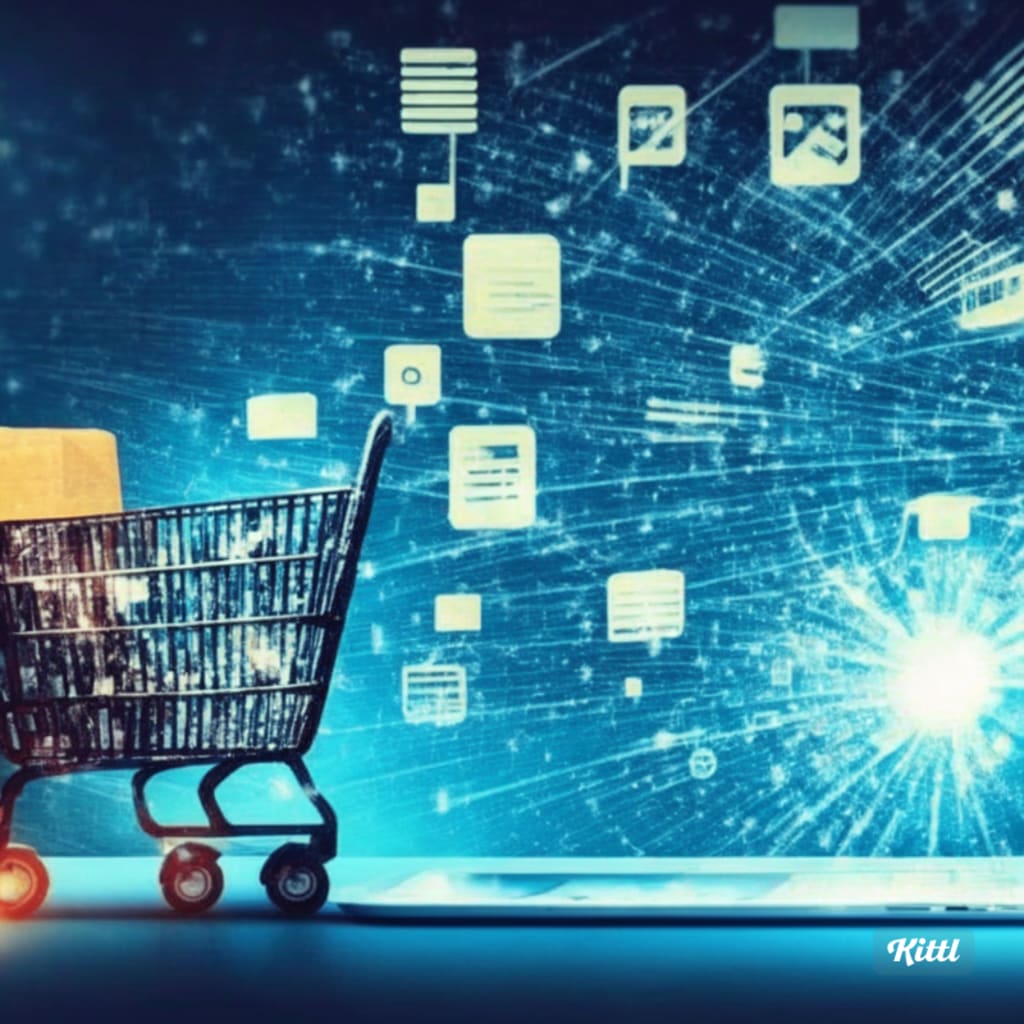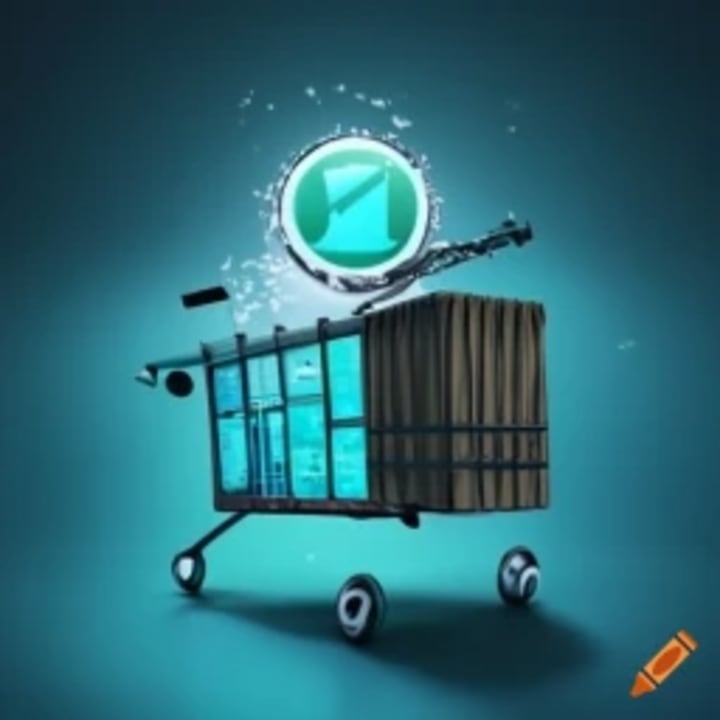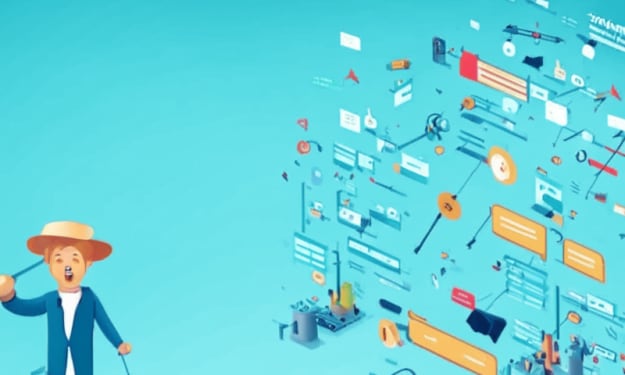The Future of E-commerce: Unleashing the Power of Marketing Automation
Revolutionizing Customer Experiences and Driving Sales with Inbound Strategies

Introduction
In the rapidly evolving digital landscape, the emergence of e-commerce has revolutionized the way businesses interact with consumers. With advancements in technology and the increasing prominence of the internet, e-commerce has become a cornerstone of modern-day trade. However, as competition intensifies and consumer expectations rise, businesses must find innovative ways to stay ahead. One such method that holds the potential to reshape the future of e-commerce is marketing automation. This essay explores the crucial role of marketing automation in the future of e-commerce, highlighting its benefits, potential challenges, and the transformative impact it can have on businesses and consumers.
Maximize Customer Engagement - Choose the Perfect Email Marketing Platform! HERE

I. The Growth of E-commerce
E-commerce has witnessed remarkable growth over the years, transforming the global economy and redefining traditional retail models. The convenience it offers, coupled with the ability to reach a vast audience, has made it a preferred choice for businesses and consumers alike. The global pandemic of recent years further accelerated this trend, forcing many brick-and-mortar stores to adopt online selling strategies to survive. As a result, e-commerce has become an indispensable channel for businesses looking to thrive in the digital age.
II. The Role of Marketing Automation
Marketing automation refers to the use of software and technology to automate repetitive marketing tasks, streamline workflows, and deliver personalized experiences to customers. It empowers businesses to engage with their audience more effectively and efficiently, providing significant advantages over traditional manual marketing approaches. Several key elements demonstrate the importance of marketing automation in shaping the future of e-commerce.

Enhanced Customer Experience
In the digital realm, customer experience is paramount. Marketing automation allows businesses to personalize their interactions with customers, tailoring content, offers, and recommendations based on individual preferences and behaviors. By providing relevant and timely information, businesses can create a seamless and delightful customer journey, fostering loyalty and increasing customer lifetime value.
Increased Efficiency and Productivity
Automating repetitive marketing tasks such as email campaigns, social media posting, and lead nurturing liberates resources and enables marketers to focus on strategic initiatives. This increased efficiency not only saves time but also enhances productivity, allowing businesses to be more agile in responding to market trends and customer demands.
Maximize Customer Engagement - Choose the Perfect Email Marketing Platform! HERE

Data-Driven Decision Making
Marketing automation generates a wealth of data about customer interactions, preferences, and purchasing behavior. Leveraging this data through analytics and insights enables businesses to make informed decisions, optimize marketing strategies, and identify new opportunities for growth.
Seamless Multichannel Integration
Modern consumers engage with brands across various channels, from social media platforms to websites and mobile apps. Marketing automation facilitates seamless integration across these channels, providing a consistent and cohesive brand experience, irrespective of the touchpoint.

III. Benefits of Marketing Automation in E-commerce
A. Personalization at Scale
Consumers today seek personalized experiences, expecting brands to understand their needs and preferences. Marketing automation enables businesses to achieve this personalization at scale by leveraging customer data to deliver relevant content and product recommendations. This not only enhances customer satisfaction but also drives higher conversion rates and repeat purchases.
B. Lead Nurturing and Conversion
In the competitive e-commerce landscape, nurturing leads is crucial to converting prospects into customers. Marketing automation allows businesses to implement sophisticated lead nurturing workflows, delivering targeted content based on a prospect's stage in the sales funnel. This automated approach nurtures leads efficiently, guiding them towards a purchase decision.
Maximize Customer Engagement - Choose the Perfect Email Marketing Platform! HERE

C. Cart Abandonment Recovery
Cart abandonment is a persistent challenge in e-commerce, with many consumers leaving their shopping carts without completing the purchase. Marketing automation can automatically trigger personalized follow-up emails or retargeting ads, reminding users about their abandoned items and enticing them to complete the purchase.
D. Customer Retention and Loyalty
Building customer loyalty is vital for sustainable growth in e-commerce. Marketing automation facilitates ongoing engagement with existing customers, ensuring they remain connected to the brand. Automated loyalty programs, personalized offers, and targeted promotions can strengthen customer retention and turn satisfied customers into brand advocates.

IV. The Transformative Impact on Businesses
A. Cost Savings and ROI
While implementing marketing automation requires an initial investment, the long-term benefits outweigh the costs. By reducing manual efforts and targeting the right audience with precision, businesses can save on marketing expenses and improve the return on investment (ROI) of their marketing campaigns.
B. Competitive Advantage
As e-commerce becomes increasingly competitive, those businesses that adopt marketing automation early gain a competitive edge. By leveraging automation to deliver better customer experiences and optimize marketing strategies, these companies stand out in the market and attract a loyal customer base.
Maximize Customer Engagement - Choose the Perfect Email Marketing Platform! HERE

C. Scalability and Growth
Marketing automation platforms are designed to scale with business growth. Whether a company expands its product offerings or enters new markets, marketing automation can efficiently handle the increasing volume of data and interactions without sacrificing quality or personalization.
V. Challenges and Considerations
While marketing automation holds immense potential, it is not without its challenges. Businesses must carefully consider the following aspects to ensure successful implementation.

A. Data Security and Privacy
As marketing automation relies heavily on customer data, e with privacy re
businesses must prioritize data security and compliancgulations. Ensuring robust data protection measures and obtaining customer consent for data usage are crucial to maintain trust and avoid potential legal repercussions.
B. Integration and Adoption
Implementing marketing automation requires integrating various systems and processes, which can be complex and time-consuming. Additionally, getting employees to adopt new technologies and workflows may encounter resistance. Proper training and change management strategies are essential to overcome these challenges successfully.
Maximize Customer Engagement - Choose the Perfect Email Marketing Platform! HERE

C. Balancing Automation and Human Touch
While automation streamlines marketing efforts, striking a balance between automation and human touch is critical. Over-reliance on automation may lead to a loss of genuine human connections with customers. Businesses must identify areas where personal interactions are necessary and use automation to enhance, not replace, human engagement.
Maximize Customer Engagement - Choose the Perfect Email Marketing Platform! HERE
Conclusion
As e-commerce continues to flourish, marketing automation emerges as a powerful tool that will shape the future of the industry. The ability to deliver personalized experiences, increase efficiency, and make data-driven decisions offers a competitive advantage to businesses. By embracing marketing automation, e-commerce companies can navigate the evolving landscape with agility, adapt to changing consumer demands, and unlock their true potential for growth and success in the digital era.





Comments
There are no comments for this story
Be the first to respond and start the conversation.